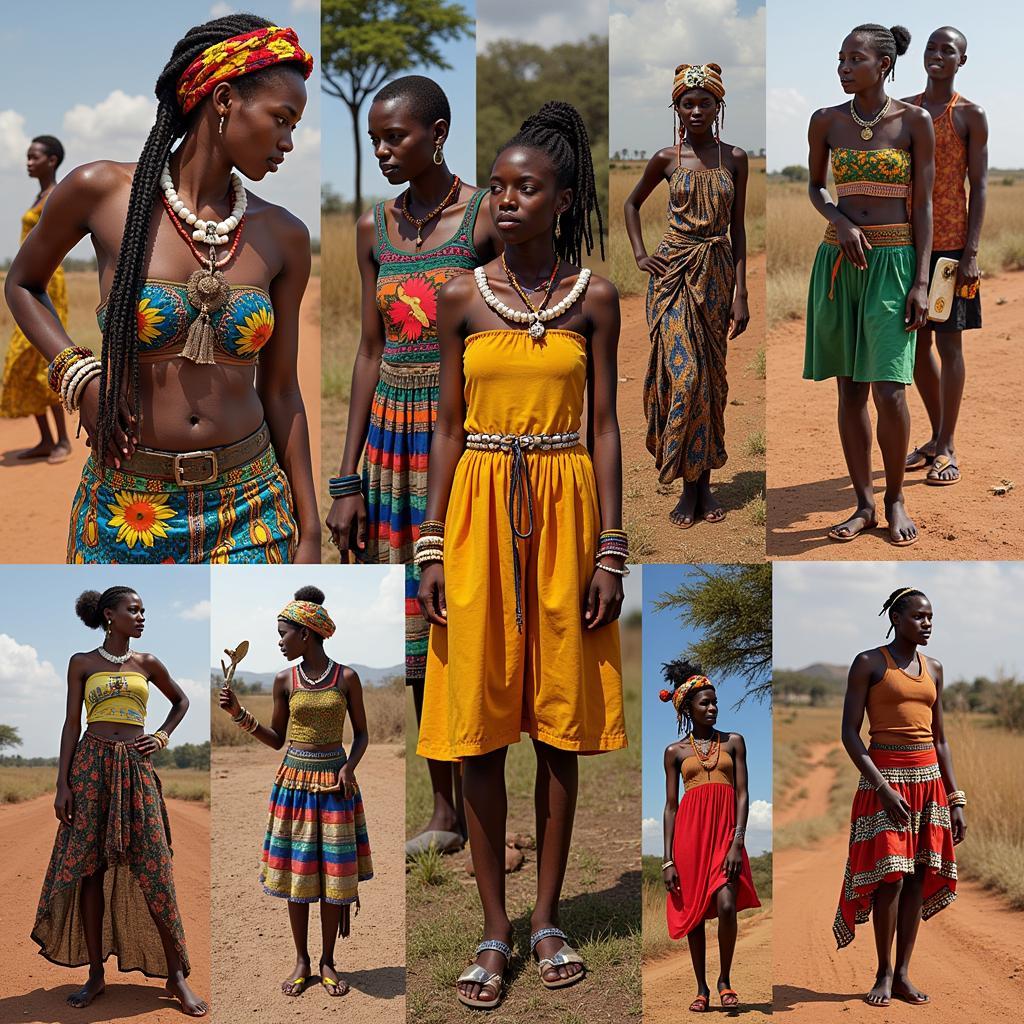Exploring the African Economy Ranking in 2017
The African economy ranking in 2017 painted a dynamic picture of growth, challenges, and opportunities. This period witnessed several African nations demonstrating resilience and making strides towards economic progress. While global economic uncertainties persisted, Africa’s diverse economies navigated the landscape with varying degrees of success.
 African economy growth in 2017
African economy growth in 2017
Factors Shaping the African Economy Ranking in 2017
Several key factors played a crucial role in shaping the African economy ranking in 2017:
- Commodity Price Fluctuations: African economies heavily reliant on commodity exports, such as oil and minerals, experienced volatility due to price fluctuations in the global market.
- Foreign Direct Investment (FDI): Increased FDI in sectors like infrastructure, technology, and consumer goods contributed to economic growth in several nations.
- Political Stability & Governance: Countries with stable political environments and sound governance structures tended to attract more investment and foster sustainable economic development.
- Demographic Trends: Africa’s young and growing population presented both opportunities and challenges. A large workforce offered potential for economic expansion, while simultaneously demanding job creation and investment in education and healthcare.
Top Performers and Notable Trends
While the African economy ranking in 2017 varied considerably, certain countries stood out for their economic performance:
- Ethiopia: With sustained growth driven by investments in infrastructure and manufacturing, Ethiopia continued its trajectory as one of the fastest-growing economies globally.
- Ivory Coast: Political stability and economic reforms paved the way for impressive growth in Ivory Coast, fueled by sectors like agriculture and services.
- Senegal: Senegal’s emerging oil and gas industry, coupled with investments in infrastructure and tourism, contributed to its positive economic performance.
A notable trend during this period was the rise of non-traditional economic sectors:
- Technology & Innovation: Africa’s burgeoning tech hubs in countries like Kenya, Nigeria, and South Africa witnessed significant growth, attracting investment and fostering entrepreneurship.
- Renewable Energy: The increasing focus on sustainable development propelled investments in renewable energy sources, such as solar and wind power, presenting new avenues for economic growth.
Challenges and Looking Ahead
Despite positive strides, challenges persisted for the African economy:
- Poverty & Inequality: While economic growth occurred, it didn’t always translate to equitable wealth distribution, and significant poverty levels remained a concern.
- Infrastructure Deficit: Inadequate infrastructure, including transportation, energy, and communication networks, continued to hinder economic progress in many regions.
“Despite the challenges, the African economy in 2017 showcased resilience and the potential for transformation. By addressing key issues and fostering sustainable and inclusive growth, African nations can unlock greater economic prosperity for their citizens.” – Dr. Amina Omar, Economist specializing in African Development
african countries and their population 2017
Conclusion
The African economy ranking in 2017 provided valuable insights into the continent’s economic landscape. While challenges remain, the period demonstrated the potential for growth and progress. By leveraging its strengths, addressing key obstacles, and embracing innovation, Africa can continue its journey towards becoming a major force in the global economy.
FAQs about the African Economy in 2017
- What were the main drivers of economic growth in Africa in 2017?
- Which countries had the highest GDP growth rates in Africa in 2017?
- What were some of the challenges faced by African economies in 2017?
- How did commodity price fluctuations impact African economies in 2017?
- What role did foreign direct investment play in the African economy in 2017?
Need Assistance?
Contact us for personalized support navigating the intricacies of the African market.
- Phone: +255768904061
- Email: [email protected]
- Address: Mbarali DC Mawindi, Kangaga, Tanzania
Our dedicated team is available 24/7 to address your queries and provide expert guidance.

